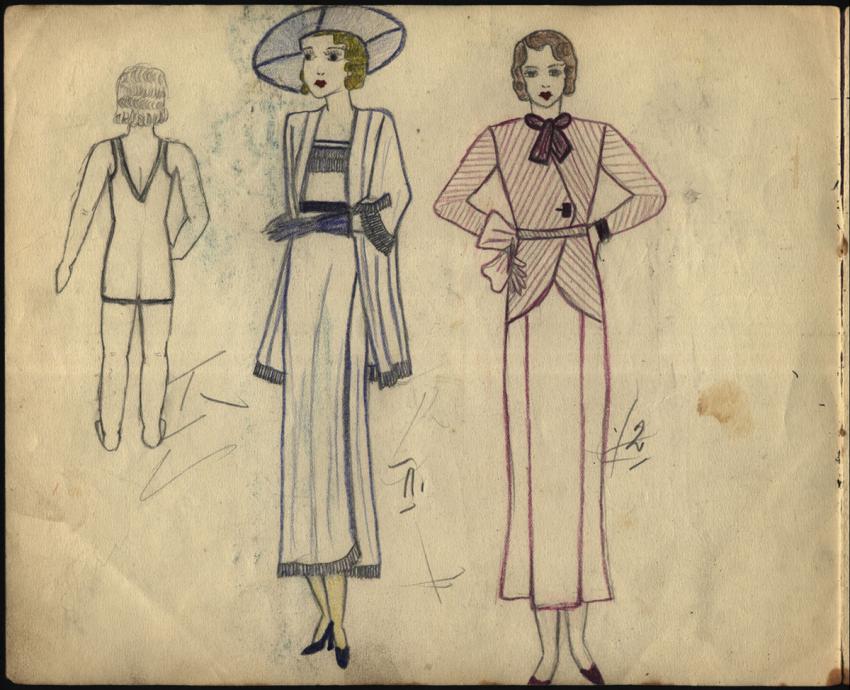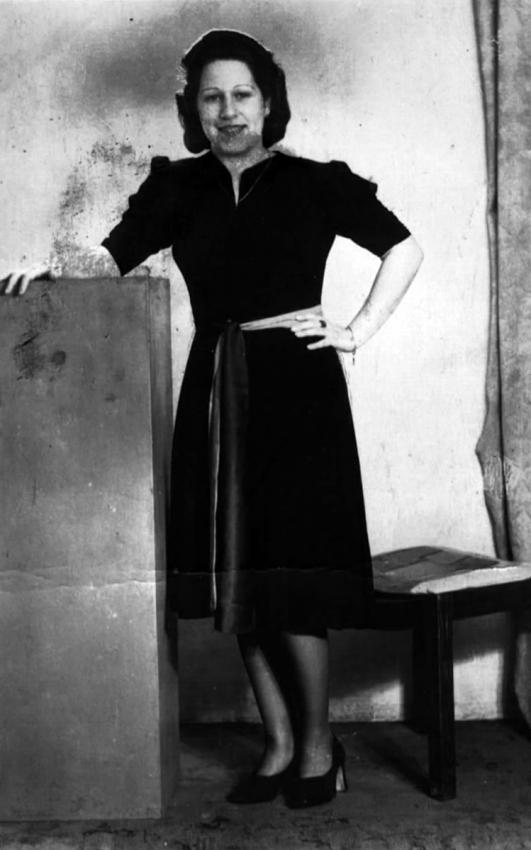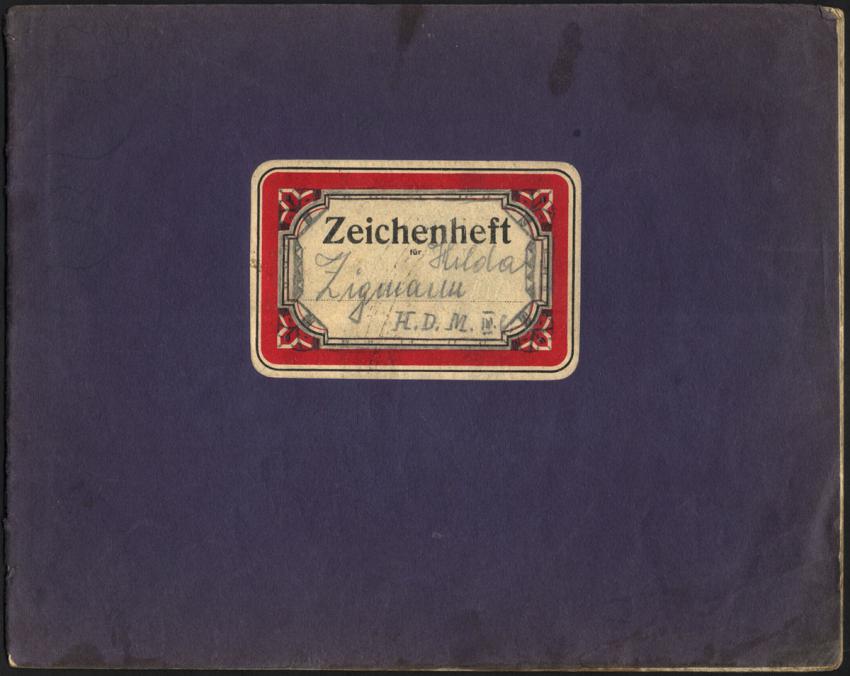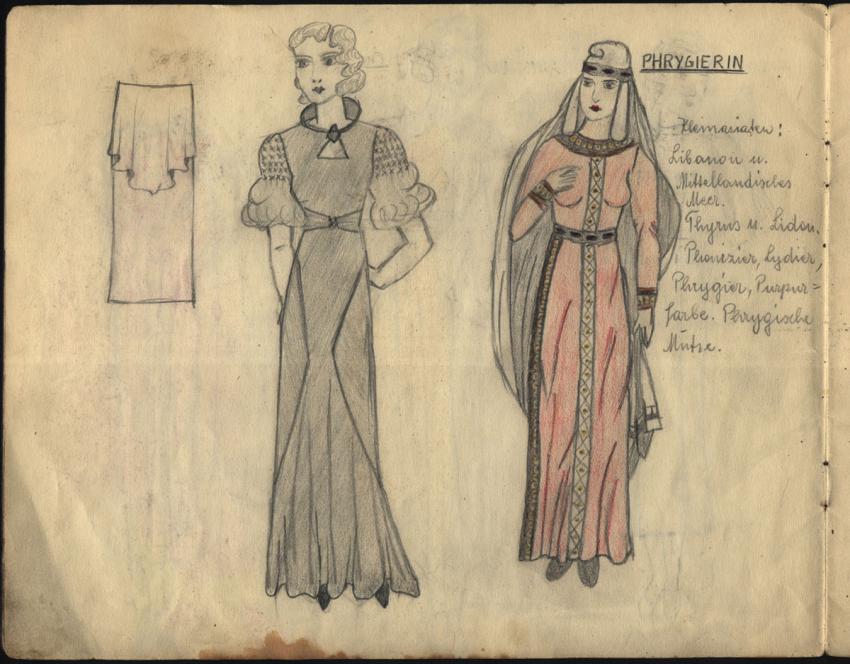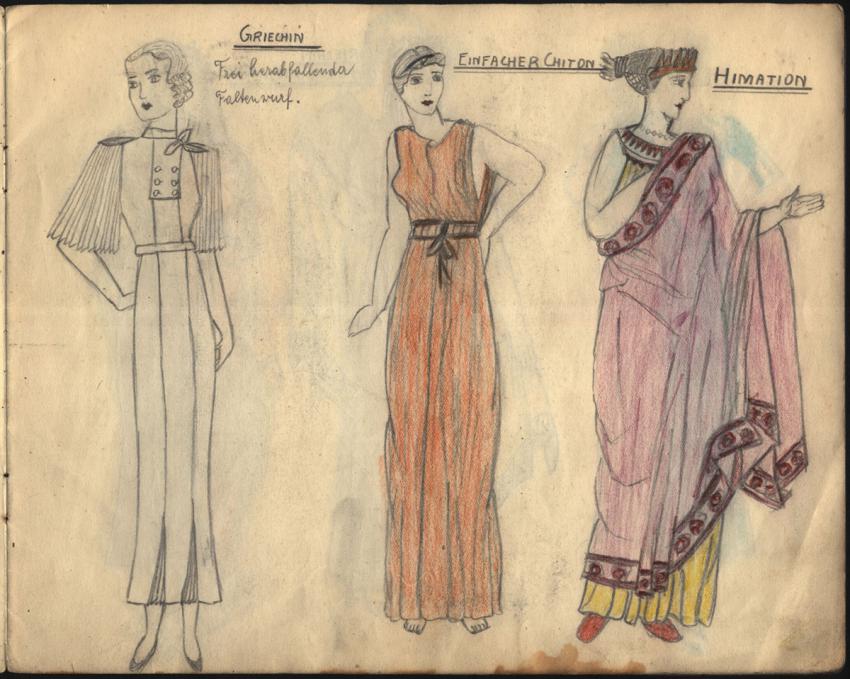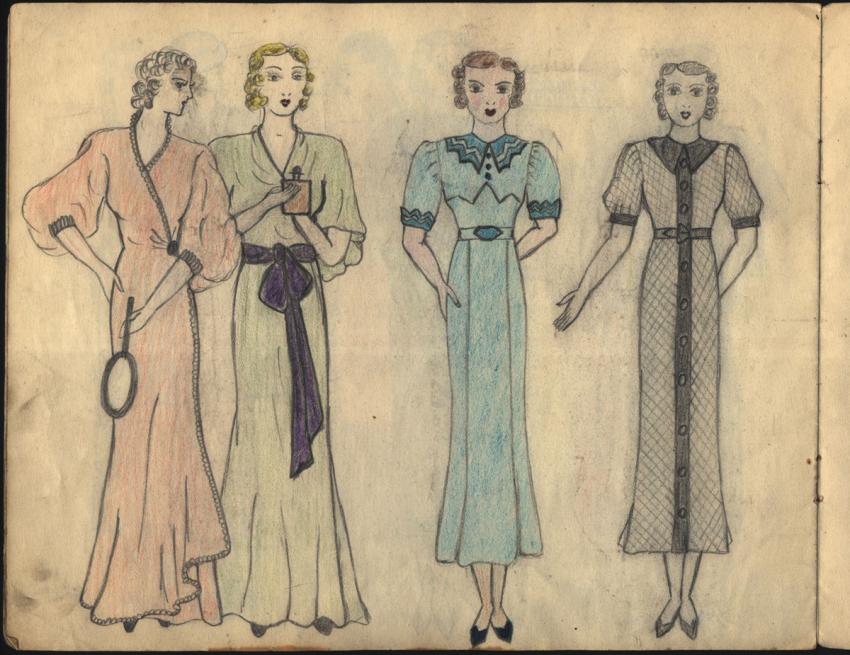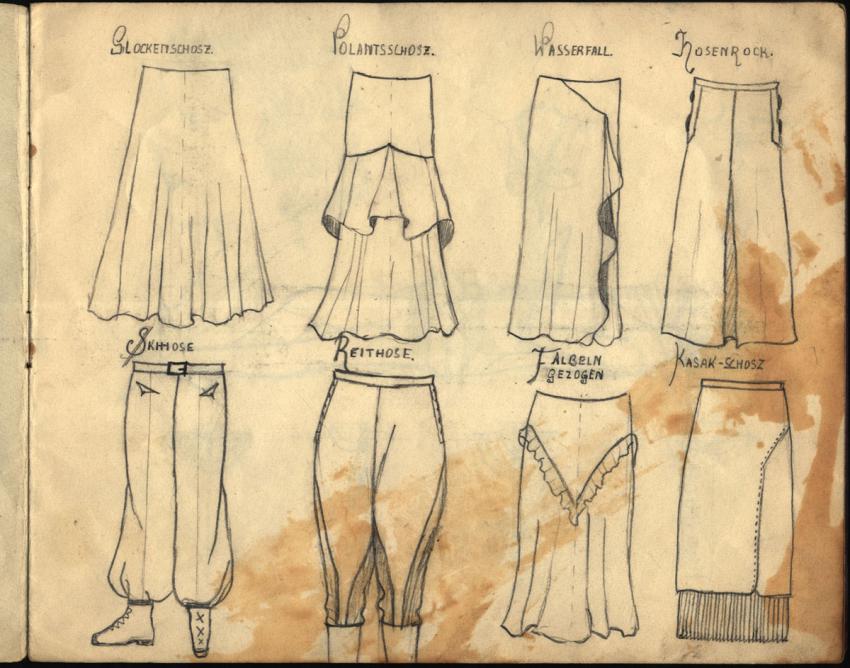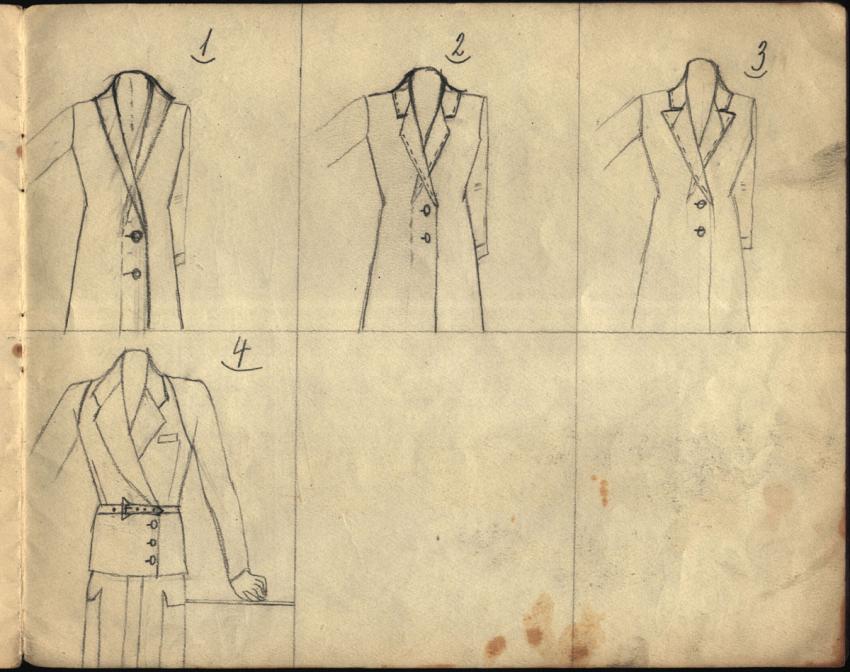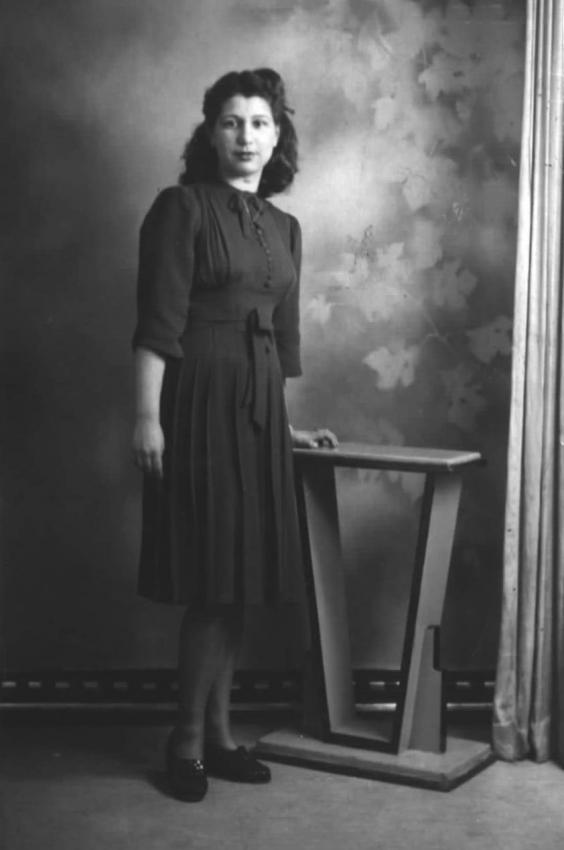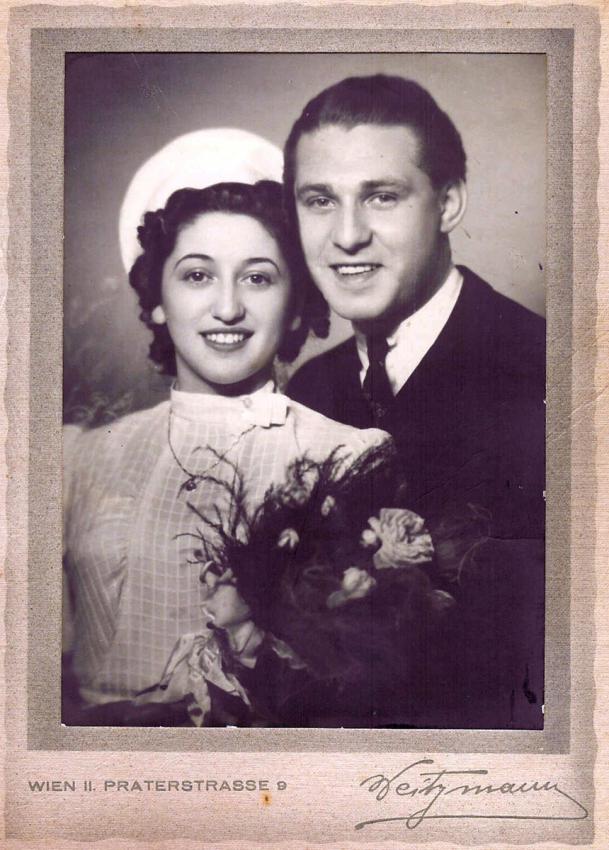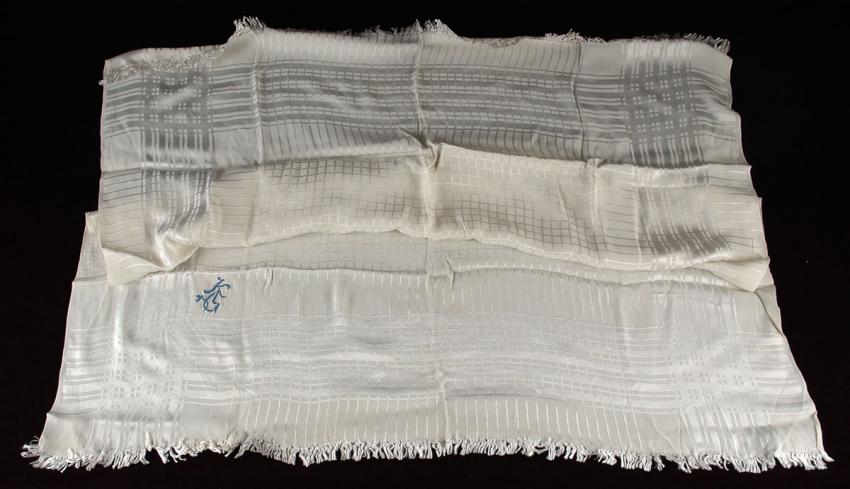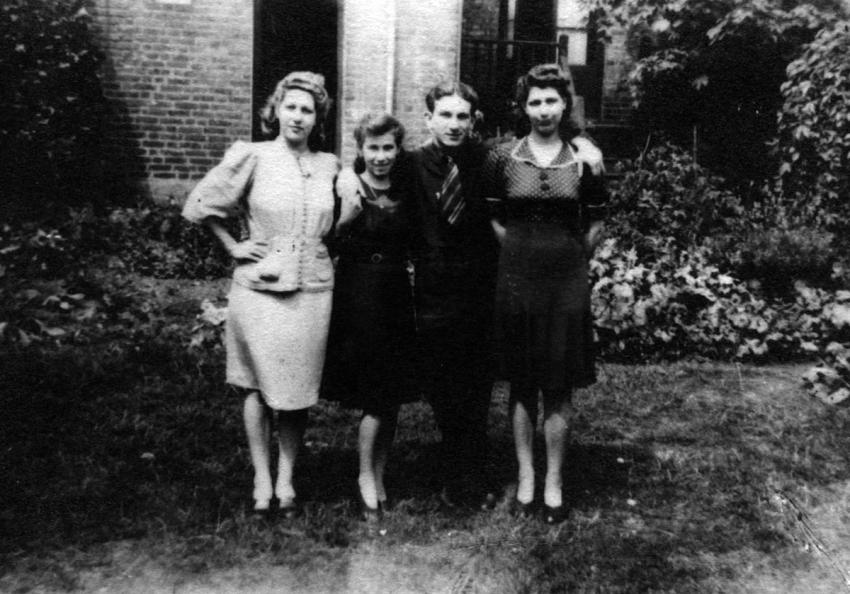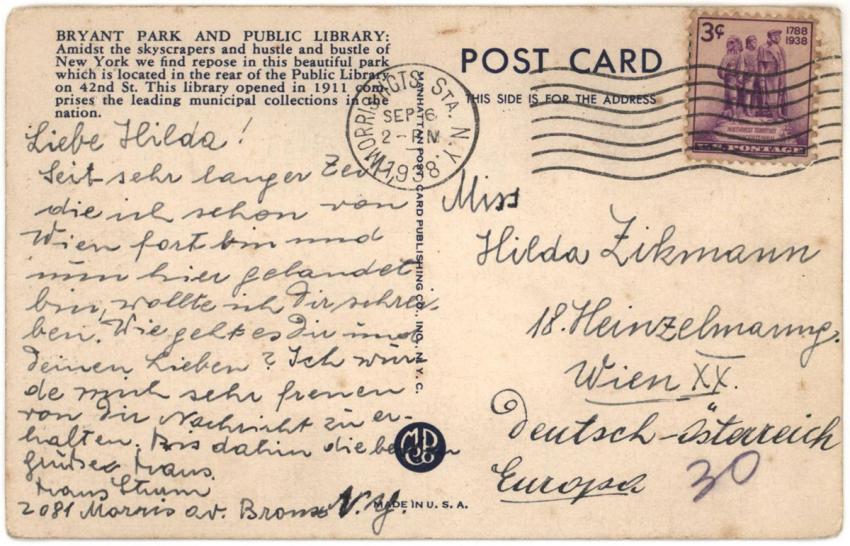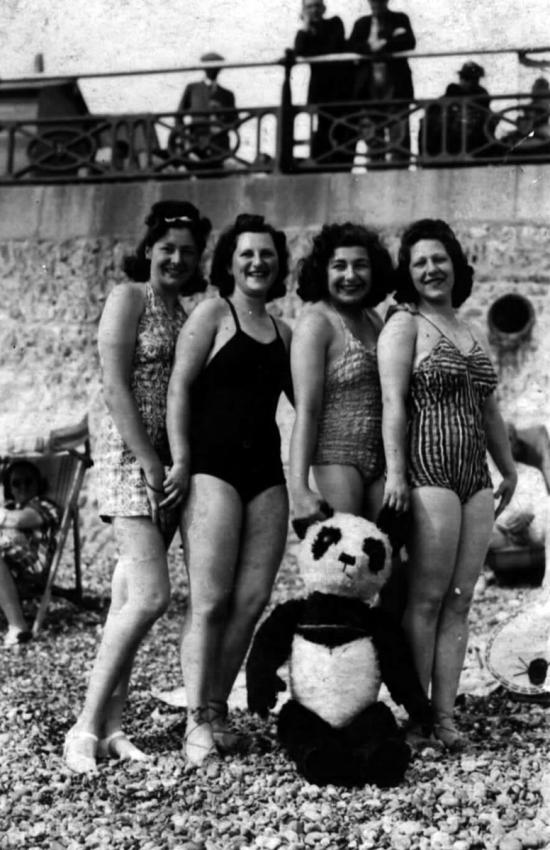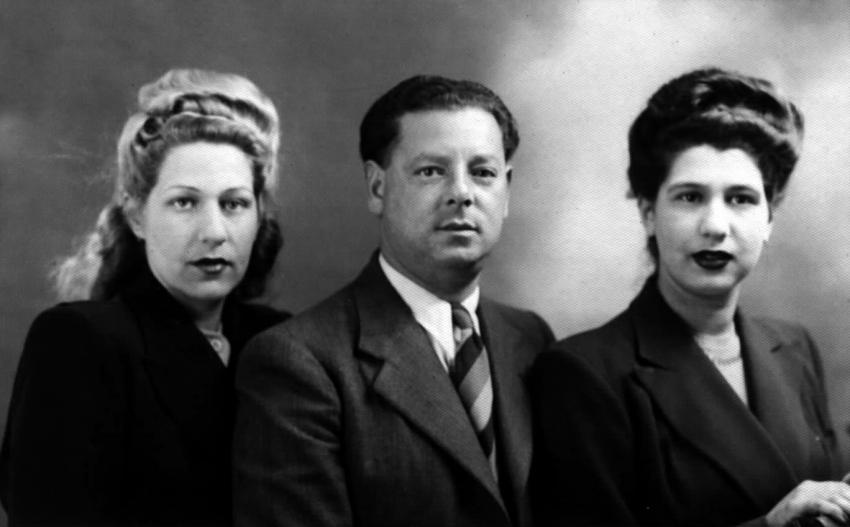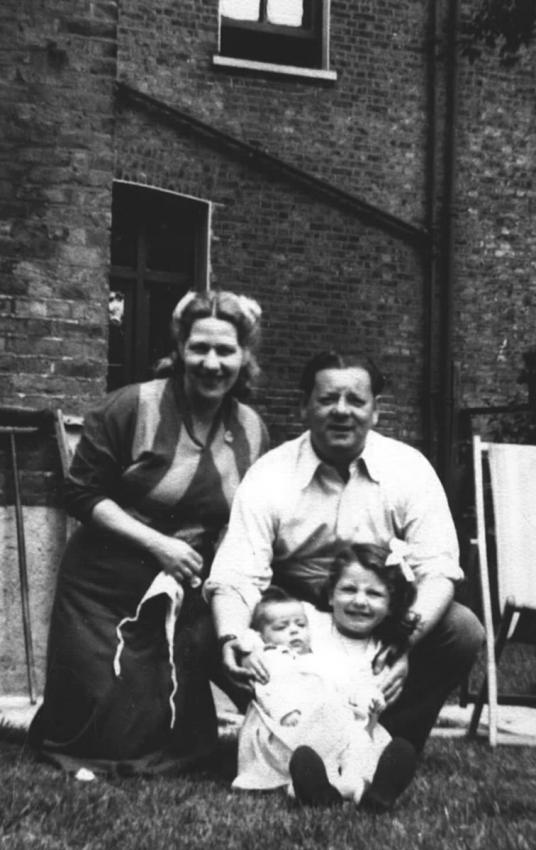In the course of 1938, before the outbreak of war, the lives of the Zigman family were disrupted forever. Hans, Hilda and Serina, the three grown-up children of Isidor and Laura Zigman managed to escape Austria, leaving behind them parents and many family members who they would never see again. In March of 1941, contact was renewed through a Viennese expatriate living in the United States. From the few letters written by Laura and Isidor that survived, we can learn something of their hopes and fears:
“We pray to God that we will have good news from all of you. How are you my dear ones? We hope you are well and pray that we will receive a few lines back in response to this letter because our hearts are full of worry and longing. Father and I kiss you from the bottom of our hearts.”
Hans, the eldest of the Zigman children, married Klara Gold, a friend of his sister, Hilda. The couple escaped to France and settled in Annecy, but the Nazis caught up with them in 1940. Early on in the occupation Hans was sent to a work camp from which he escaped into hiding for the remainder of the war. Klara was deported on 4 September 1942 through Drancy to Auschwitz, where she was murdered.
In the spring of 1938, the elder Zigman daughter, 19-year-old Hilda, worked part-time in the women’s fashion store Meyer on the Blindengasse in Vienna, in conjunction with her studies in fashion design. Not only did she have to stop her studies as a result of Nazi persecution; she also suffered the humiliation of being forced to wash the pavement outside the Jewish-owned store when the Nazis targeted it.
As the situation worsened, Hilda and her boyfriend Hans Sturm were forced to part ways when he managed to obtain a visa to the United States. Hilda eventually left Vienna for London with help from an unexpected source. An acquaintance, a young Austrian soldier who saw her in the long line for visas outside “Rothschild House”, helped her to obtain the coveted document. In spite of Hans’s attempts to find a way for Hilda and her family to join him, the war kept them apart, and when Hans came to look for Hilda after the war’s end, she had already married.
In England, Hilda found employment as a cleaner in a home in Leicester where an older woman, a friend of her mother’s, was employed as a cook. When the family let her go, being “dissatisfied with her cooking”, Hilda followed the woman to London where she found work as a seamstress.
Serina, the youngest of the Zigman siblings, managed to leave Germany for England on one of the last Kindertransports, and after a short stay with a family that treated her badly, she joined Hilda in London.
In July 1941, Hilda was able to inform her parents of her engagement to Lew Mazin. Her parents, Isidor and Laura wrote back with the following wishes:
…Please God you will always be happy and healthy. Our heartfelt wishes that all your dreams will come true, and that you should always be happy and contented in life, that’s the important thing. Please, dearest daughter, write to us when the wedding is to be so that here we can do something for the family - we also want to celebrate the happy occasion from afar. We can report that father is working and we are healthy - God should only continue to help us…
Tragically, Isidor and Laura’s prayers for themselves went unanswered. With the implementation of the Nazi’s Final Solution, Isidor and Laura were deported in June 1942 from Vienna to Izbica, Poland and murdered. Their extended family, neighbors and friends suffered the same fate.
In June 1942, at the same time as her parents’ bitter fate was sealed in Poland, Hilda married Lew Mazin in London. Their two daughters, Susan and Laureen live, one in England and the other in the United States. Hilda’s brother Hans Zigman survived, remained in France and married Simone-Sonia Boucara. Their daughter Chantal lives in Israel. Hans passed away in France, aged 84. Serina married Erich Weiss, a fellow refugee from Vienna, and continues to live in England.
In 2007 the three cousins, Laureen (Mazin) Hart, Susan (Mazin) Rutherford and Chantal (Zigman) Ghozland donated Hilda’s sketchbooks, letters written by the Zigman and Weiss families, and a scarf, the last remaining memento of Hans’ first wife Klara (Gold) Zigman, to Yad Vashem.
The story serves as a memorial to the family members who did not survive the Holocaust and a tribute to those who survived and rebuilt their lives.
Yad Vashem Artifacts Collection
Gift of Laureen Hart, USA, Susan Rutherford, England, Chantal Ghozland, Israel
